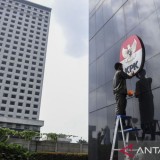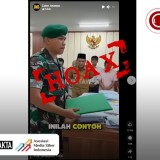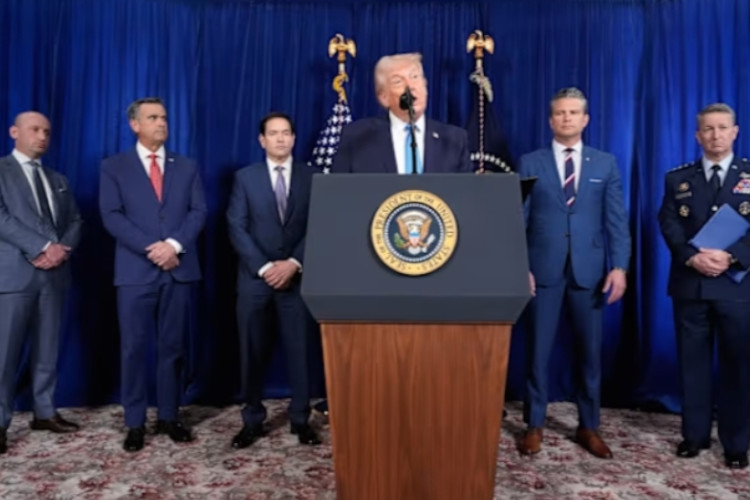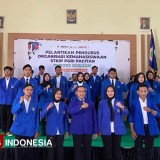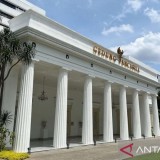TIMES JAZIRAH, PADANG – Taxes are one of the main sources of state revenue used to finance infrastructure development, healthcare services, education, and various social programs that support public welfare. However, despite its crucial role, public understanding of taxes remains relatively low. Tax literacy is the key for society to comprehend the function of taxes, the rights and obligations related to taxation, and the direct or indirect impacts of their contributions to the nation.
A lack of tax literacy among the public can lead to various problems, both in personal lives and within the structure of the state. Insufficient understanding of taxes often results in non-compliance, confusion, and even inequity in its application. Therefore, enhancing tax literacy should be a priority in financial education in Indonesia.
First, tax literacy helps the public understand that taxes are not just obligations but also a form of contribution to collective development. Many people view taxes as an additional burden, yet taxes are a crucial pillar that allows the government to provide public facilities and services. With proper understanding, people will become more aware that the taxes they pay return to them in the form of adequate infrastructure, educational facilities, and better healthcare.
Second, tax literacy teaches individuals about their rights within the taxation system. Many are unaware that they have the right to transparent information regarding tax management and the right to access tax relief or refunds if they meet the criteria. Without tax literacy, people risk forfeiting these rights due to ignorance.
Third, tax literacy provides knowledge about the various types of taxes in effect. In Indonesia, there are different types of taxes, such as income tax (PPh), value-added tax (VAT), land and building tax (PBB), and motor vehicle tax. Each type of tax has its own rules and provisions, and understanding these differences helps people plan their finances. For example, the current VAT rate is 11%, and understanding this taxation mechanism allows the public to be more accurate in calculating the final price of goods or services they consume.
In a broader context, tax literacy is also linked to the economic well-being of society. When individuals understand good tax planning, they can optimize their earnings potential in a lawful and ethical manner. For instance, self-employed individuals or small and medium-sized enterprises (SMEs) with strong tax literacy can take advantage of available tax incentives, such as tax cuts or exemptions for micro, small, and medium businesses.
Moreover, tax literacy helps individuals avoid legal issues arising from non-compliance with tax regulations. Ignorance is not an acceptable excuse in taxation, so understanding tax obligations early on will protect individuals or businesses from the risk of severe penalties.
The government plays a crucial role in improving public tax literacy. In addition to fair and transparent tax policies, the government needs to educate the public about the importance of taxes through various channels, such as social media, public campaigns, or formal education. Collaborations with schools, universities, and community organizations to hold seminars, workshops, and courses on tax literacy can also be effective.
In the digital era, online platforms can serve as an effective tool for disseminating tax literacy. User-friendly tax applications, government websites that provide clear tax information, and social media channels sharing concise and engaging tax content can help the public access this knowledge more easily.
Despite the importance of improving tax literacy, significant challenges remain. One of these is the considerable information gap between urban and rural areas. In remote regions, access to tax information tends to be limited, leading to lower tax literacy levels. This necessitates different approaches, such as direct outreach or information dissemination through local media.
Additionally, the frequent changes in tax policy, which tend to be complex, also pose a challenge. The public often struggles to keep up with new regulations that affect their tax obligations. Therefore, the government must ensure that information about changes in tax policy is quickly and easily accessible to all segments of society.
Enhancing tax literacy in Indonesia is an essential step toward creating a more knowledgeable and responsible society in managing national finances. With strong tax literacy, people will not only be more compliant with their obligations but also more aware of their rights within the taxation system. Ultimately, high tax literacy will support more inclusive and sustainable economic growth, fostering social equity for all citizens of Indonesia.
***
*) Oleh : Silmi, S.E., M.Ak., Dosen PNS Akuntansi Fakultas Ekonomi dan Bisnis, Universitas Andalas.
*)Tulisan Opini ini sepenuhnya adalah tanggungjawab penulis, tidak menjadi bagian tanggungjawab redaksi timesindonesia.co.id
*) Kopi TIMES atau rubik opini di TIMES Indonesia terbuka untuk umum. Panjang naskah maksimal 4.000 karakter atau sekitar 600 kata. Sertakan riwayat hidup singkat beserta Foto diri dan nomor telepon yang bisa dihubungi.
*) Naskah dikirim ke alamat e-mail: [email protected]
*) Redaksi berhak tidak menayangkan opini yang dikirim.
**) Ikuti berita terbaru TIMES Indonesia di Google News klik link ini dan jangan lupa di follow.
Artikel ini sebelumnya sudah tayang di TIMES Indonesia dengan judul: The Urgency of Tax Literacy: A Key to a Smart in Managing National Finances
| Writer | : Hainor Rahman |
| Editor | : Hainorrahman |

